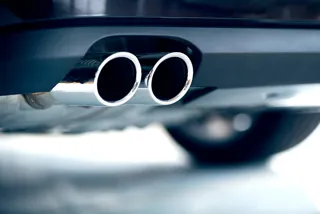Bristol City Council has launched a public consultation to establish which air quality measures it will introduce.
The council is considering two options; a Clean Air Zone or a diesel car ban.
Its proposed Clean Air Zone would charge non-compliant vans and trucks from entering the city centre and would include a local scrappage scheme, improvements to buses and taxis to compliant standards, bus and local traffic interventions in the most polluting areas, incorporating a bus lane on the M32, a targeted diesel ban on the highway past the Bristol Royal Infirmary and a charging scheme for polluting buses, taxis, light goods and heavy goods vehicles.
The Diesel car ban would prevent any diesel car from entering a specific central area for an eight-hour period (from 7am-3pm).
A public consultation on the two options will run for six weeks. The council then intends to decide on the preferred option in September, with a full business case approved by government by December.
Both options would be accompanied by a package of non-charging measures, such as bans on highly polluted routes for heavy goods vehicles and bus priority measures, alongside a city-wide scrappage scheme and improvements to buses and taxis to ensure they are all within compliant emission standards.
Bristol City Council has previously been threatened with legal action by the Government after it failed to submit its final air quality plans on time.
The local authority received a ministerial direction on July 27, 2017, requiring it to provide a final plan to deliver compliance with legal limits for nitrogen dioxide (NOx) in the shortest possible time by December 31, 2018.
Leeds and Birmingham City councils have had to postpone the introduction of new Clean Air Zones because a vehicle checker tool, which is being delivered by the government’s Joint Air Quality Unit (JAQU), will not be ready in time.
Birmingham City Council has said its Clean Air Zone may be delayed until July 2020 as a result.





















Peter Kilvert - 02/07/2019 17:13
If you want to improve air quality BAN the burning of BIOMASS in power stations, in commercial operations and in domestic wood burning stoves. Not only is it the most polluting for carbon dioxide it produces masses of particulate matter and other unhealthy chemicals. Bristol should become a BIOMASS FREE ZONE..